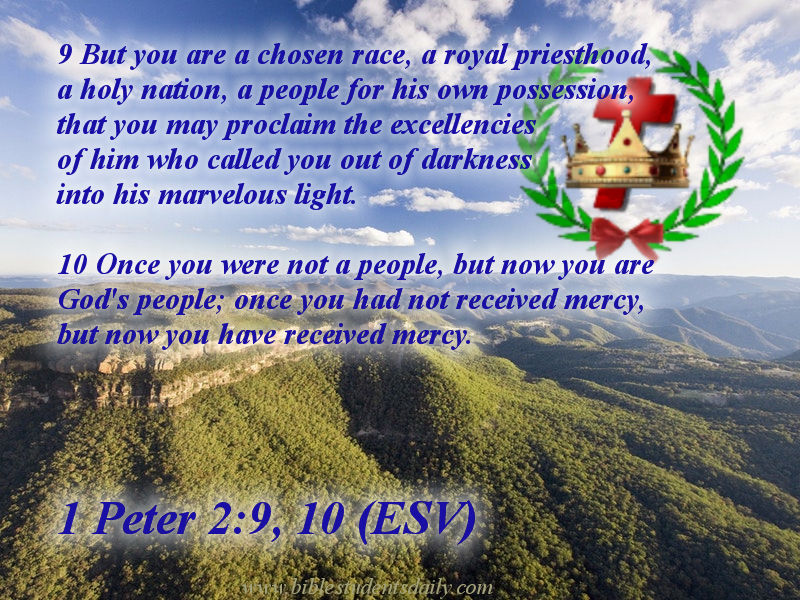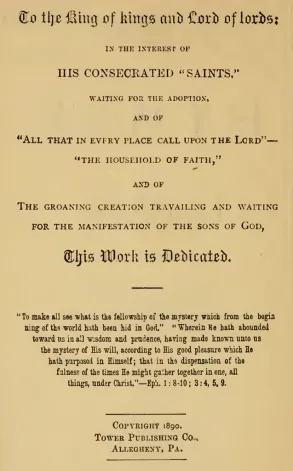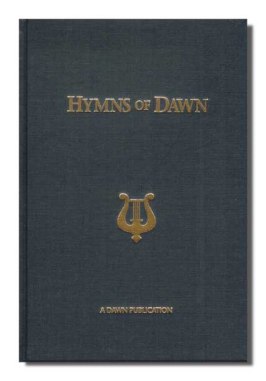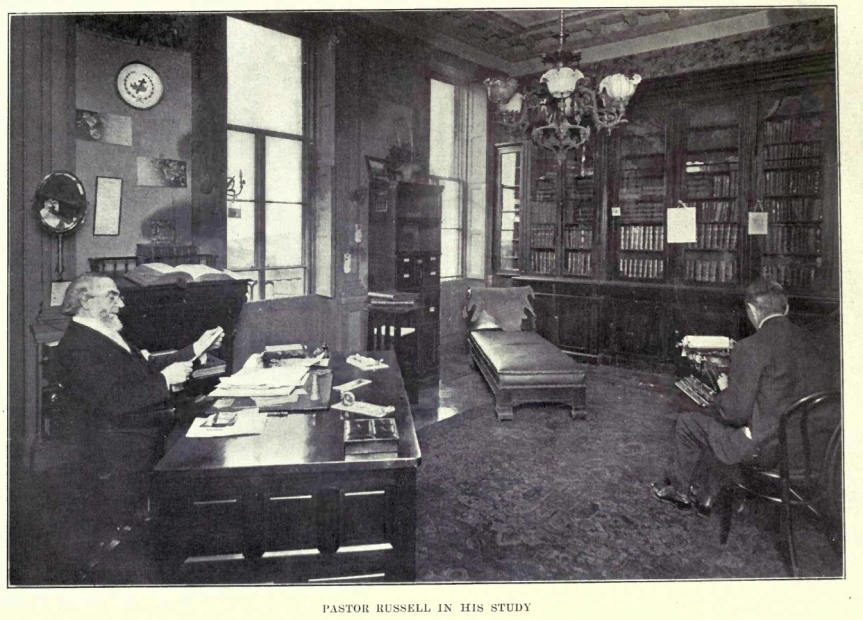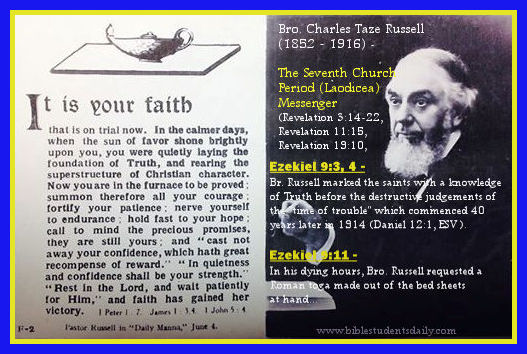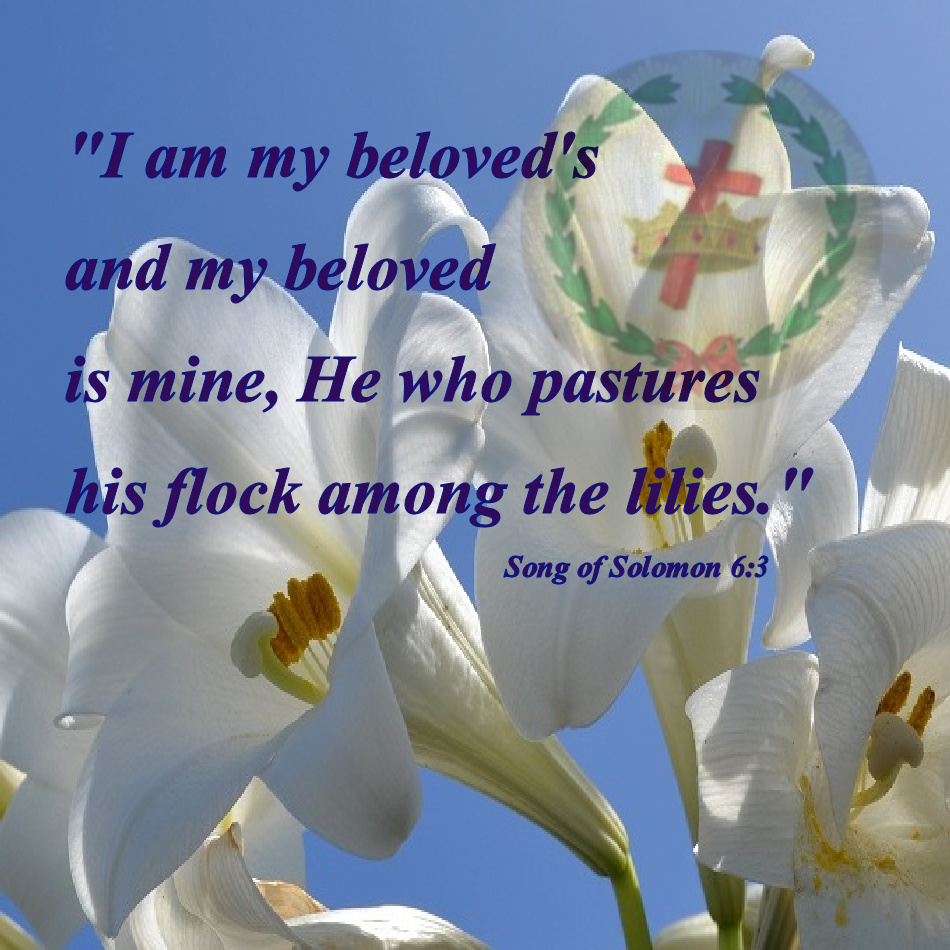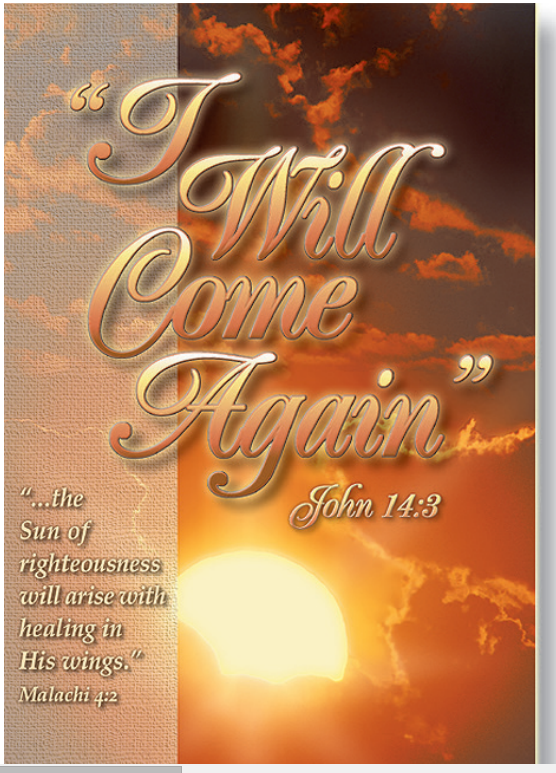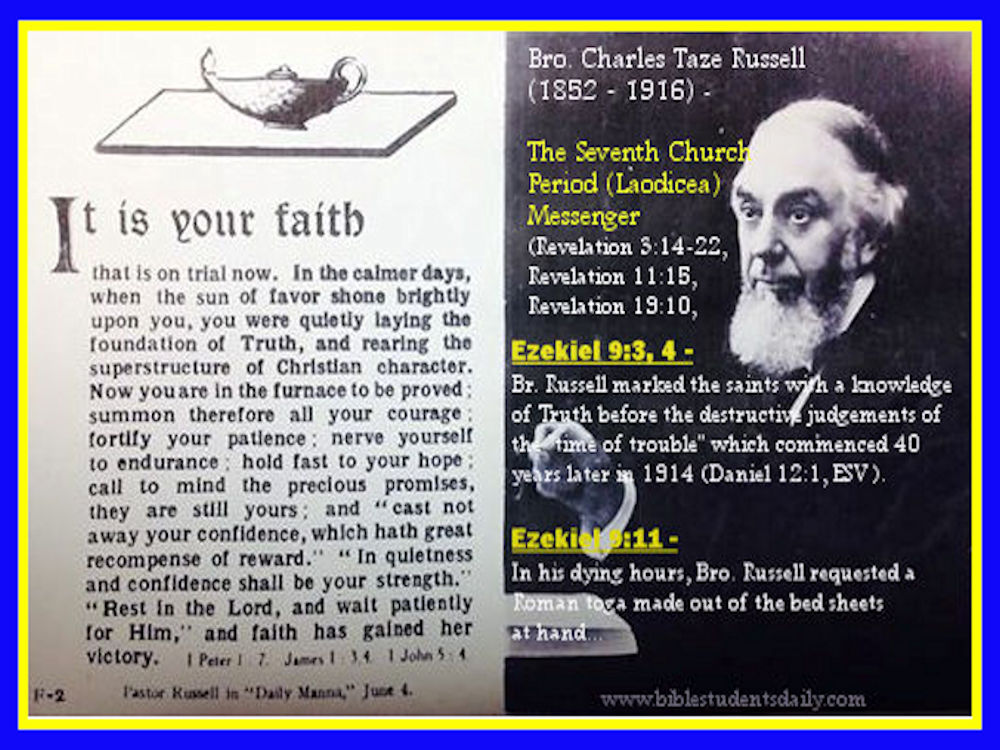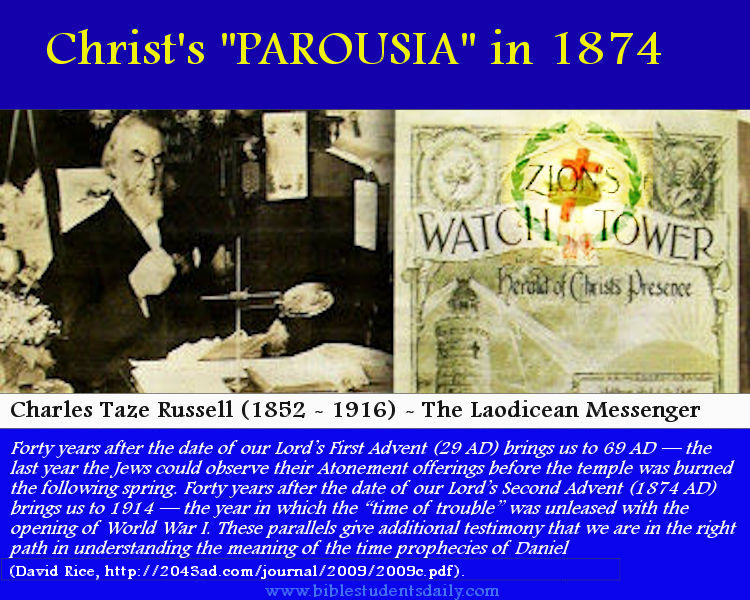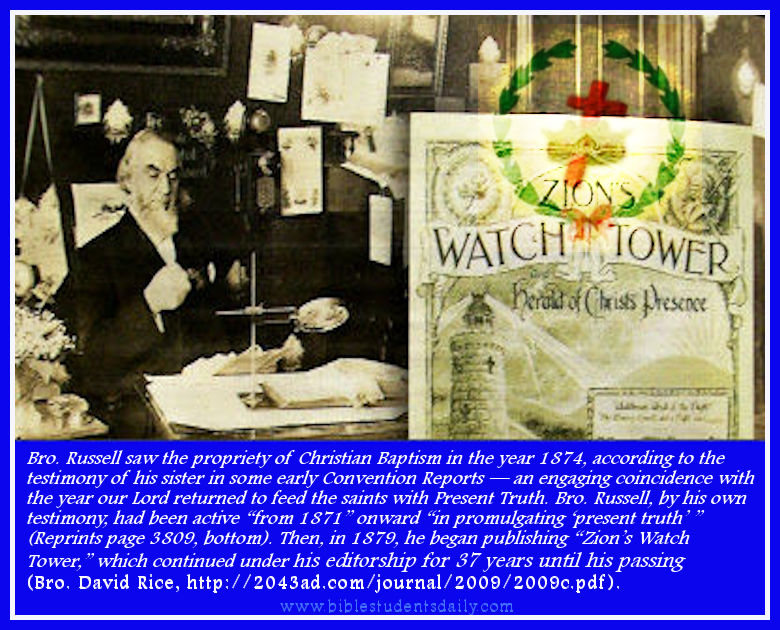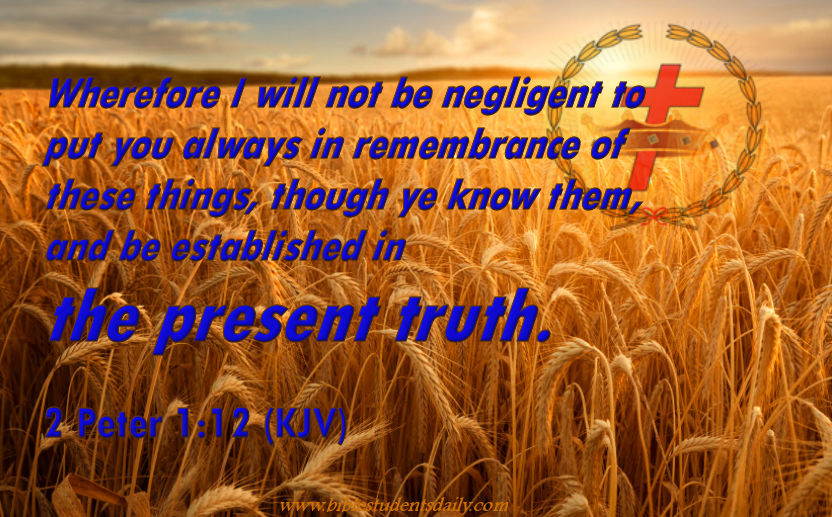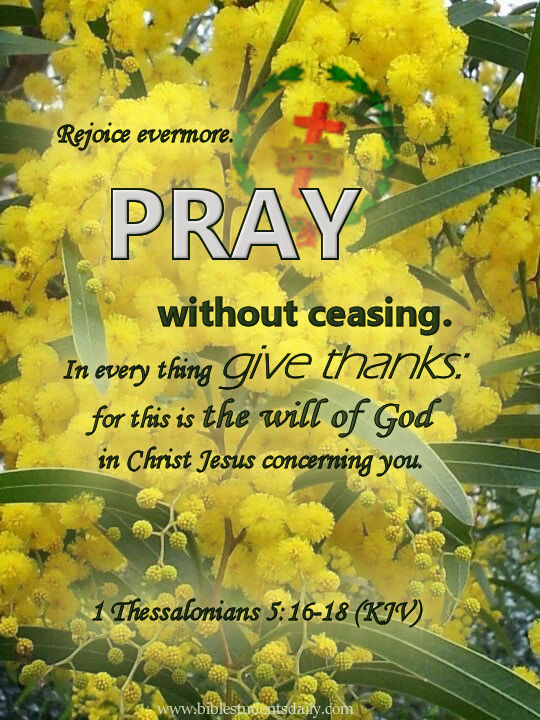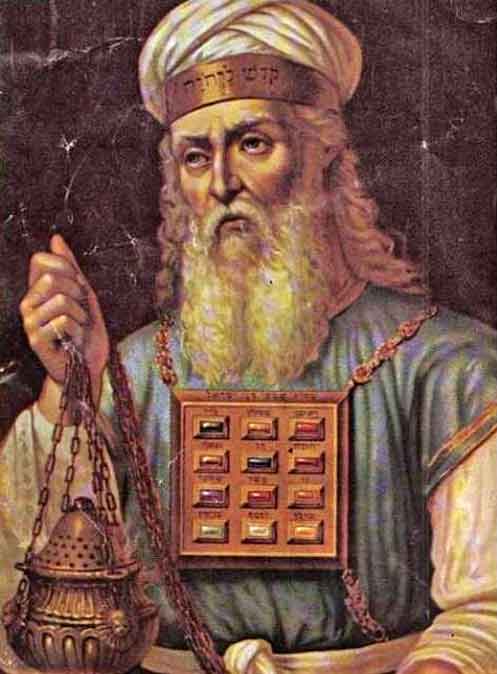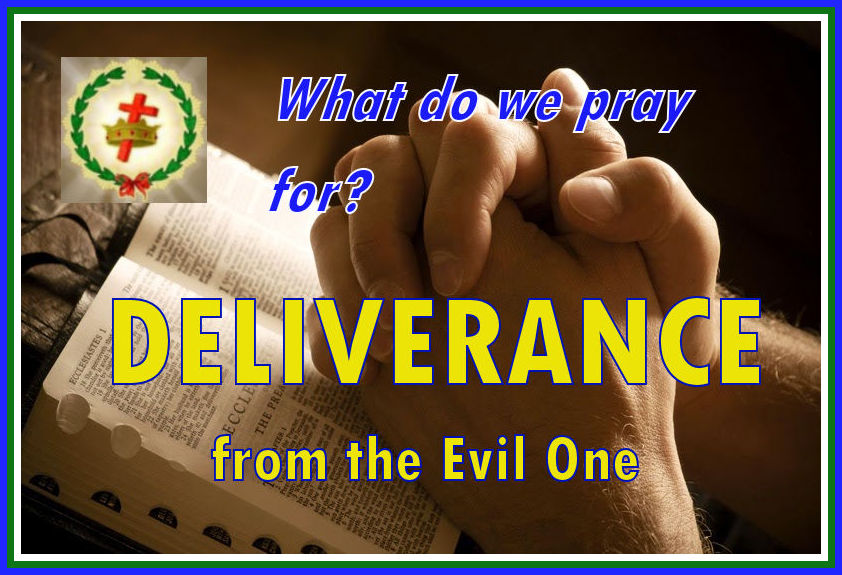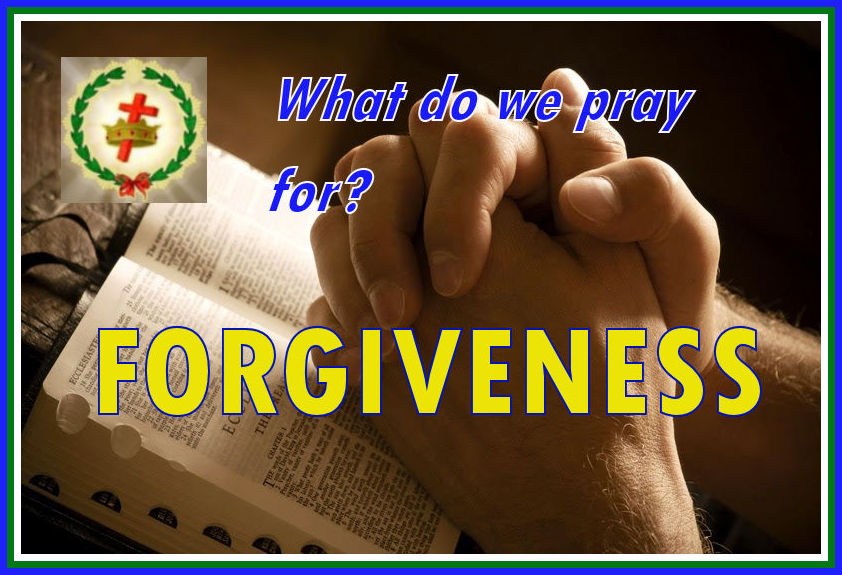
Romans 11:25 reads: “I do not want you to be ignorant of this mystery, brothers and sisters, so that you may not be conceited: Israel has experienced a hardening in part until the full number of the Gentiles has come in…”
Many Bible Students believe this means that the Jews will open their hearts to God once the 144,000 Bride of Christ are complete beyond the vail, and have made their “calling and election sure” (2 Peter 1:10) and when the 1000-year Millennial Age begins. But then what about those of Jewish faith in the Gospel Age who have consecrate their lives to follow Jesus? Hence, can Romans 11:25 relate to the Gospel Age now and how?
“And so all Israel will be saved, as it is written: “The Deliverer will come out of Zion, And He will turn away ungodliness from Jacob” (Romans 11:26).
Moreover, the next verse refers to “all Israel” being saved. Much has been written about what these two verses mean.
Two Traditional Interpretations of “All Israel”
Traditionally there have been two views concerning what “all Israel” means.
The first interpretation says, with variations, that the Apostle Paul is speaking prophetically of a corporate salvation of the Jewish people (natural Israel) at the end of the Gospel age – this is sometimes called the Dispensational view and this was taught by Pastor Charles Russell.
The second interpretation, again with variations, says that the Apostle Paul is speaking of the salvation of all of God’s people of faith (spiritual Israel) during this Gospel age, whether they are of Jewish or Gentile background.
The first interpretation seems clearly incorrect, as it is based on a faulty understanding/translation of “kai hautos” in Romans 11:26 (discussed further below), moreover it is inconsistent with the immediate context of Romans Chapter 11 and the larger context of the unfolding lessons in the epistle of Romans.
The second interpretation seems closer to the correct view in that it pertains to the call of the faithful during the Gospel Age; which is consistent with the context, but is not fully correct as it does not explain the Apostle Paul’s immediate point and warning to the Roman Gentiles of their “conceit” (Romans 11:25). Also, it does not take into account the Apostle Paul’s aim of saving some (more) of his fellow Jews (Romans 11:14) who can be grafted back in again if they continue not in unbelief (Romans 11:23). The Roman Gentile believers became conceited as they thought all Jews were forever cast away from the call of God to be of the Abrahamic seed of blessing. Paul’s immediate argument is that this is not correct because they can be grafted back in again by God if they continue not in unbelief. The “blindness in part” of natural Israel (Romans 11:25) was not irrevocable, and some would be grafted back in so that “all” of the [believing] remnant of natural Israel would be saved.
“All Israel”
Here it is suggested that “all Israel” actually refers to the total remnant of believing natural Jews – the “fulness” of Israel (Romans 11:12). And this total remnant has two parts:
- The initial believing Jews (like the Apostles, and the other disciples) when the call was exclusive to natural Israel.
“God, having raised up his servant, sent him to you first, to bless you by turning every one of you from your wickedness” (Acts 3:26).
2. The later believing Jews that would be “provoked to jealousy” (Romans 11:14) once the “fullness” of the Gentiles believers came in, resulting in them being grafted back in again (Romans 11:23).
“if by any means I may provoke to jealousy those who are my flesh and save some of them” (Romans 11:14).
“And they also, if they do not continue in unbelief, will be grafted in, for God is able to graft them in again” (Romans 11:23).
It may seem odd to suggest that the “all” does not refer to all of natural Israel, but rather to all of Israel that find salvation through justification by faith in Jesus during the present Gospel Age – the remnant that the Apostle Paul talks about in Romans 9:27 and Romans 11:5.
“For if their rejection means the reconciliation of the world, what will their acceptance mean but life from the dead?” Romans 11:15
We note how this “all” of the believing remnant of Israel is consistent with the way the Apostle refers to the Gentile world in Romans 11:15, where he says “For if their [Israel as a nation] rejection means the reconciliation of the world” – clearly, he does not mean reconciliation of all Gentiles but only those of faith.
Both references to “Israel” in Romans 11:25-26 indicate natural Israel [although not all Israelites].
Romans 11:30–31 – “Just as (1) you were once disobedient to God but have now received mercy because of (2) their disobedience, 31 so they have now been disobedient in order that, by the mercy shown to you, (3) they too may now receive mercy.”
(1) = Gentile believers
(2) = natural Israel as a nation
(3) = the later part of the remnant of believing Jews
Romans 11:32 – “For God has consigned all to disobedience, that he may have mercy on all (Gentile believers and Jewish believers [initial + later]”).
Initially small number of Jews “came in” who believed first in Jesus and turned from their sins (Acts 3:26) – i.e. the Apostles, and the other disciples when the call was exclusive to natural Israel. Then, when the nation of Israel as a whole rejected Jesus and the call went to the Gentiles, the “fullness” of Gentiles came in. Once the “fullness” of Gentiles came in (and were grafted in) more natural Jews were “provoked to jealousy” and come to believe in Jesus and were thereby grafted back in again, and also be saved.
In order to explain Romans 11:25-26 correctly and coherently, it seems important to consider the following:
i) The Apostle Paul’s immediate points concerning the “conceit” of some of the Gentile brethren in the Roman church (Romans 11:25).
In Romans 11:25 the Apostle Paul says that they [the Roman brethren – largely Gentile believers] should not be conceited [“wise in your own opinion”] and be not ignorant of this mystery [something previously unknown or hidden] viz blindness (unbelief) has happened in part to natural Israel until the “fullness” of the Gentiles come in, then by implication the rest of the believing remnant would have its blindness lifted [having been provoked to jealousy] resulting in Israel’s “fulness” (Romans 11:12) of the Abrahamic promise [like the fulness of the Gentiles in Romans 11:25].
ii) The Apostle Paul’s immediate aim to save some (more) of his fellow Jews (Romans 11:14) by “provoked them to jealousy” (Romans 11:11,14) and being grafted back into the Abrahamic Olive tree of promise (Romans 11:23).
iii) The immediate context of Romans Chapter 11.
The immediately preceding verses tell us how unbelieving Jews were broken off from the Israelite Abrahamic olive tree of promise and believing wild olive (Gentile) branches were grafted in. But the Apostle Paul’s main point is that the engrafted Gentile branches should not “boast” (Romans 11:18) and not to be “haughty” (Romans 11:20) because if the broken off natural branches (unbelieving Jews) continue not in unbelief they can be grafted back in again by God (Romans 11:23.) This is a continuation of the Apostle’s main aim stated in Romans11:11,14; that despite his commission to the Gentiles, he is seeking by any means to “provoke to jealousy” his fellow Jews and save some [more] of them.
iv) The wider context of the Apostle Paul’s logical and unfolding message in the epistle of Romans:
Especially that the inheritance of the eagerly sought Abrahamic promise [to be his seed that will bless all the families of the earth] is based solely on faith in Jesus – whether of Jewish background or Gentile background (Romans 4:16).
v) The underlying ancient Greek:
26 καὶ οὕτως πᾶς Ἰσραὴλ σωθήσεται, καθὼς γέγραπται… NA27
“kai hautos” at the beginning of Romans 11:26 does not mean “and then” in terms of time; it means “in this way.” Unfortunately, “kai hautos” has been mistranslated in Wilson’s Diaglott [which Pastor Russell based his understanding on] as “and then” – and this mistranslation suggests that something new in time happens after the call of the seed is complete – it does not.
“In this way” all Israel (the initial and later parts of the believing remnant of natural Israel) would be saved – meaning that more natural Jews would come to believe, having been “provoked to jealousy” by faithful Gentiles and be grafted back into the Abrahamic olive tree of promise [the seed].
“kai hautos” – “In this way” refers to what Paul has said before, in verse 25. And therefore, what is said in Romans 11:25 shows how all Israel (the whole believing remnant of natural Israel – the initial and the later parts = the fulness of Israel [Romans 11:12]) gains salvation.
This explains the Apostle Paul’s warning of conceit to the Roman Gentile brethren in Romans 11:25 – some more Jews would be provoked to jealousy and believe and thereby be grafted back in. Just as God showed mercy to the Gentiles through Israel’s disobedience, mercy would be shown to Israel thereby there would be a “fulness of Israel” (Romans 11:12) also.
What Does “The Deliverer will Come out of Zion, and Banish Ungodliness from Jacob” Mean and When Did This Begin?
“And so all Israel will be saved, as it is written: “The Deliverer will come out of Zion, And He will turn away ungodliness from Jacob” (Romans 11:26).
In Romans 11:26, the Apostle Paul refers to a prophetic quote to substantiate his point. He quotes from Isaiah 59:20, 21
“‘The Redeemer will come to Zion, And to those who turn from transgression in Jacob,’ Says the Lord” (Isaiah 59:20).
We note that the Isaiah verse says the Deliverer will come to Zion, not from Zion as in Romans 11:26. This means that the Apostle Paul has changed it – and probably for good reason.
“To you first, God, having raised up His Servant Jesus, sent Him to bless you, in turning away every one of you from your iniquities” (Acts 3:26).
“’The Redeemer will come to Zion, to those in Jacob who repent of their sins,’ declares the LORD” (Isaiah 59:20).
Also, Isaiah 59 gives us more information about what “banishing ungodliness from Jacob” actually means – the Deliverer comes to those (of Jacob – natural Israel) that turn from their transgression (sins). Now we outlined above (in the Acts 3 verses) that there were only a few [the initial part of the believing remnant] Jews who believed and turned away from their sins, and when they did, they had their sins forgiven. This all began to occur at and shortly after Pentecost not at the end of the Gospel Age.
That it is talking about the initial part of the believing remnant of natural Israel is shown in Acts 3 when it says “to you first” i.e. before the call went to the Gentiles – before the later part of the believing remnant of natural Israel would be provoked to jealousy and believe in Jesus.
Also, this time point tells us why the Apostle Paul changed the quote to “the Deliverer shall come from Zion” rather than “to Zion,” as in Isaiah 59:20. And this is because in a typical way, Jesus had already come to Zion. When he came to Jerusalem on a foal triumphantly and hailed as king, the first thing he did was to go to the temple (which was situated on Mt Zion in Jerusalem) and overturned the money changers table – which showed in a literal way that he had already come to Zion and began the process of banishing ungodliness from Jacob, so that now [when the Apostle Paul was writing] after having come to Zion he came from Zion to (after His sacrifice) give to those few believing Jews that turned from the sins permanent and true forgiveness of sins.
“4 As you come to him, a living stone rejected by men but in the sight of God chosen and precious, 5 you yourselves like living stones are being built up as a spiritual house, to be a holy priesthood, to offer spiritual sacrifices acceptable to God through Jesus Christ. 6 For it stands in Scripture: “Behold, I am laying in Zion a stone, a cornerstone chosen and precious, and whoever believes in him will not be put to shame” (1 Peter 2:4–6).
“God, having raised up his servant, sent him to you first, to bless you by turning every one of you from your wickedness” (Acts 3:26)
That Jesus came to Zion and laid the cornerstone on which the Church (the temple of God) would be built, occurred at his first Advent is made clear in 1 Peter 2: 4-6. The Church is being built now during the Gospel age. When Jesus laid that cornerstone, he was able to then first go to the house of Israel and begin banishing ungodliness from Jacob (the initial part of the remnant) Romans 11:26, Acts 3:26.
All of the (Natural) Israelite Remnant
“Isaiah cries out concerning Israel: ‘Though the number of the Israelites be like the sand by the sea, only the remnant will be saved’” (Romans 9:27).
That “all Israel” refers to all the remnant of natural Israel should not come as a surprise, for in Romans 9:27 the Apostle Paul has made it clear that only a remnant of Israel would be saved.
“Again I ask: Did they stumble so as to fall beyond recovery? Not at all! Rather, because of their transgression, salvation has come to the Gentiles to make Israel envious” (Romans 11:11).
This “restricted” sense of the salvation of all of the natural Israel remnant also should not be surprising, since this is the same sense used in regards to the Apostle’s phrase “salvation has come to the Gentiles” in Romans 11:11. Salvation did not come to all Gentiles – only to some, and only to those of faith. Moreover, in the same verse it is very likely that not all Israel became envious — again suggesting that “to make Israel envious” means “to make some of Israel envious”.
Another reason for believing that “all Israel” means “all” of the [believing] remnant of natural Israel is that the Old Testament promise in Isaiah 59:20 in regards to the deliverer banishing ungodliness from Jacob, was made to natural Israel. The context of the promise in Isaiah suggests that we would expect a fulfilment in regards to natural Israel. These verses pointed to a time when ungodliness would be banished from natural Israel despite their stubbornness and faithlessness to God. But the added information from the Isaiah verse shows the Deliverer would only come to those that “repent of their sins.” Importantly this already occurred at the first advent of Jesus. Moreover, this suggests that the “all Israel” will be restricted to those that “repent of their sins” (Isaiah 59:20).
“This is he who was spoken of through the prophet Isaiah: A voice of one calling in the wilderness, ‘Prepare the way for the Lord, make straight paths for him’” (Matthew 3:3).
John the Baptist prepared the way for the Lord, he preached a Baptism of repentance from sins and thus made it easier for Jesus to identify those ready for faith in him. Importantly it is restricted to only those of natural Israel that repented of their sins and were therefore ready for faith in Jesus.
“For this reason Christ is the mediator of a new covenant, that those who are called may receive the promised eternal inheritance—now that he has died as a ransom to set them free from the sins committed under the first covenant.” Hebrews 9:15
This was a work which started at the beginning of the Gospel Age not at its end. Those of the remnant of Israel were set on the path to life by faith in Jesus. Only through deliverance from Adamic sins could they become the promised children of Abraham and inherit the eternal promise and eternal life. Through this new arrangement faithful Jews were able to be set free from the sins made manifest by the previous law covenant.
“If you belong to Christ, then you are Abraham’s seed, and heirs according to the promise” (Galatians 3:29).
For it is only those that belong to Christ that are the true seed of Abraham and heirs according to the promise (Galatians 3:29).
“You are sons of the prophets, and of the covenant which God made with our fathers, saying to Abraham, ‘And in your seed all the families of the earth shall be blessed.’ 26 To you first, God, having raised up His Servant Jesus, sent Him to bless you, in turning away every one of you from your iniquities.” Acts 3:25,26
In the same way the promise of the seed which would “bless all the families of the earth (Genesis 28:14)” had its first [partial] fulfilment at the first advent. Here the seed was Jesus. He was sent first to the house of Israel to bless them by turning them from their sins.
Subsequently, the blessing, in this restrictive sense went to the Gentiles, i.e. the rest of the nations of the earth. But again, we note that every person was not blessed – only those that turned from sin and looked to Jesus by faith would be blessed.
“If you belong to Christ, then you are Abraham’s seed, and heirs according to the promise” (Galatians 3:29).
But the ultimate [full] fulfilment, with which we are most familiar, will occur in the Millennium Age – the 1000-year Kingdom of God. Here the seed will be Jesus and his 144,000 body members. Note that this is not an extension of the same fulfilment. In the first, Jesus is the seed that blesses the prospective body members. These in turn with Jesus become the seed that will bless all the nations in the kingdom – making it a separate fulfilment.
We also note that because of the grammatical structure in relation to houtos and kathos, “all Israel will be saved” is correlative to “The deliverer will come from Zion; he will turn godlessness away from Jacob.” This means the “salvation of all Israel” occurs because the Deliverer shall banish ungodliness. The Deliverer banishing of ungodliness to those that repent of their sins in Jacob, makes clear that “all Israel will be saved” and it means deliverance from Adamic sin and eternal life rather than just a lifting of blindness, and this began to be fulfilled at the beginning of the Gospel Age, not when it ends.
Amen.
This post’s URL is: https://biblestudentsdaily.com/2024/11/18/until-the-full-number-of-the-gentiles-has-come-in/



